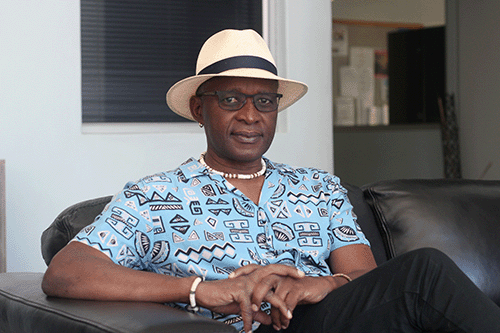Maria Amakali
As defamation cases are on the rise, members of the public opt to sue media houses instead of going for the cost-effective and faster self-regulation mechanism. However, self-regulation is in peril as the very members who subscribe to it don’t sustain it. Namibian media decided to self-regulate after years of threats from government to enforce statutory regulation, and established the office of the Media Ombudsman in 2009.
The position is held on a voluntary basis by a respected legal expert, who receives and adjudicates the public’s complaints about the media and
promotes professional ethics amongst the media.
Speaking to New Era on the issue, Media Ombudsman John Nakuta said this phenomenon is due to the office’s lack of visibility, which is attributed to a lack of funds. He said at the moment, the organisation, which resorts under the Editors Forum of Namibia (EFN), does not have funds to create awareness around its mandate. The organisation receives most of its funding from the EFN.
“Funding is a major concern. I know the EFN is complaining about this, and as a result there are currently no outreach programmes. As a matter of fact, we only had one outreach programme two years ago, only because it was funded by an external donor. This is really not an ideal situation,” stated Nakuta.
He admits that more needs to be done to make the office more visible to the public as it seeks to give alternative justice to aggrieved persons. “The services that we are providing are much more cost-effective, faster and less time-consuming. So ideally, people are supposed to approach and make use of this office. But I would be the first one to admit that we are not doing enough to publicise this office. That means we should do much more than what we are doing now,” he continued. Nakuta’s predecessor, Clement Daniels, also shared similar sentiments. “We had the same problems. But funding is dependent on the members’ contributions. So, there would always be funding issues in terms of making the office more visible as it costs money to market an organisation,” he added.
Daniels furthermore indicated that the issue of funding has the potential to affect media self-regulation. Nakuta and Daniels both indicated that another reason why aggrieved members of the public are approaching the courts may be because the Media Ombudsman cannot give an order for monetary compensation.
Some of those who have approached the courts for defamation suits include labour minister Utoni Nujoma, who has taken legal action against the weekly Windhoek Observer newspaper. Nujoma seeks a compensatory payment of N$150 000 for allegedly being defamed in an article titled ‘Farmer accuses Nujoma of extortion’. The case is currently before the High Court.
Recently, the Supreme Court narrowly ruled in favour of The Namibian after a Windhoek-based lawyer had earlier won against the daily and its editor in a defamation case in the High Court two years ago.
The Supreme Court set aside the High Court’s order, replacing it with an order that lawyer Vincent du Toit’s legal action against editor Tangeni Amupadhi and The Free Press of Namibia is dismissed with costs.
Last year, Namibia Media Holdings lost a defamation case filed against them by Johan Lombaard and his company Golden Game CC. The court ordered the
media house to pay a total of N$120 000 in damages.
EFN chairperson Frank Steffen said it is not a new phenomenon, agreeing with the Media Ombudsman that they are not visible due to finances. But, the EFN cannot afford to finance that office, he added.
“The problem that we currently have is the economic crisis that the country is experiencing. Media houses are unable to sustain the systems that are prescribed by law to an extent of properly financing the ombudsman for him to properly do his job as expected,” clarified Steffen.
He said the EFN’s position was communicated to the Media Ombudsman, and plans are in place to seek funding. But, such plans of approaching various organisations for funding are heavily affected by Covid-19. “We would like to fund them more, but the reality is that there are no funds. We pay for the few expenses, but it is not enough to enable him to carry out his job. Mind you, this position was created by way of law, but up to now, we really do not get any financial assistance for that,” emphasised Steffen.
Namibia University of Science and Technology (NUST) communications professor Admire Mare said there is a need to capacitate the office of the Media Ombudsman and increase its visibility. He indicated that as much as the mechanism of self-regulation is the most preferred, one thing that is coming to the fore in terms of academic research is the weakness that comes along with it. Generally, some of the weaknesses have to do with the fact that it lacks the sufficient funding mechanisms to remain in force, he said. “So, donor funding could be one way of actually salvaging its reputation. But all media houses that are part of this mechanism must pay their regular membership fees to the EFN. This will enable the EFN to capacitate that office,” Mare reasoned. He furthermore proposed a media tax for media organisations, which can then be channelled to capacitate and sustain that office.
“I think it is getting to a point where people are feeling that the self-regulatory mechanisms have run their course. People are starting to feel that although it is good to have, they do not see it as an effective mechanism to ensure that there is quality, professional and ethical journalism happening in the media space,” noted Mare.


